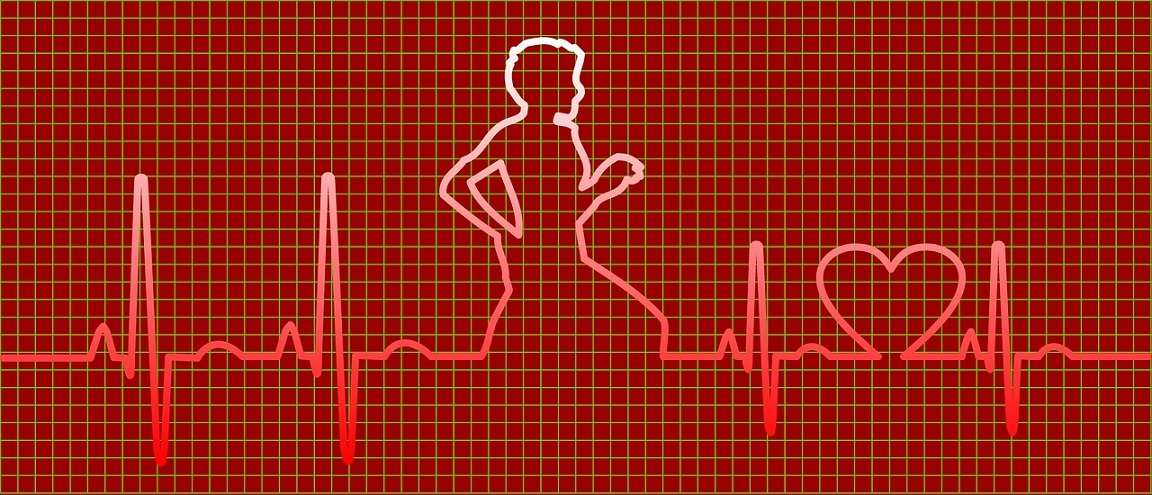When you see your doctor for a check-up, your doctor will likely ask how you’re doing, check your blood pressure and maybe your weight. If you smoke or have diabetes, your doctor may also ask about those. Rarely will a doctor ask you about your exercise. But given how physical activity is effective at preventing and treating various diseases, this could be one of the most important measures to ask about. Your physical activity should be a vital sign in your medical record.

Why Don’t Doctors Ask About Physical Activity
Studies differ on how many doctors talk to their patients about their activity. One found only 36% of doctors do it. Another reported nearly 50% did. In a study of 14 319 primary care doctors, 85% said they asked their patients about their physical activity, while only 16% provided written physical activity prescriptions. And a study of doctors’ electronic medical records found less than half of patients had any documentation on their physical activity.
There’s a whole number of reasons why doctors don’t ask patients about physical activity. This can be due to doctors’ own self-perception, as doctors who reported being overweight were less confident in talking about physical activity. Some doctors say it’s just easier to prescribe medications. Fee structures may also be a concern, as some jurisdictions don’t pay doctors for physical activity counselling. But doctors who are active themselves counsel their patients nearly twice as often as doctors who aren’t active.
A lack of education is the most common reason cited by doctors. Doctors often report they feel they don’t have the knowledge needed to talk to patients about physical activity. This occurs because most medical schools do not include physical activity in their program. But this is changing, although slowly, as medicals schools bring in lifestyle medicine (training in exercise, nutrition and other health behaviours) into their training for medical students.

The Benefits of Physical Activity
Physical activity is associated with a whole host of health benefits. People who are physically active are less likely to get type 2 diabetes, heart disease, cancer, osteoporosis and dementia, among other diseases. They’re also more likely to live longer. Physical activity can make you feel better and reduces your chances for getting a mental illness. And your fitness level is a more powerful predictor of lifespan than many traditional risk factors.
Despite all these benefits, many people do not get enough activity. As a result, not getting enough activity (physical inactivity) is the fourth leading cause of early death worldwide accounting for 5.3 million deaths a year. It’s estimated if physical inactivity was reduced by 10%, 533 000 of these deaths would be prevented.
And it’s not just for preventing disease. Exercise is a proven treatment for many diseases as well. Exercise-based cardiac rehabilitation is a standard treatment for those with heart disease. Exercise therapy is as effective as drugs for lowering blood pressure and depressive symptoms. As a result, exercise is cited as a treatment option for people with depression. And guidelines for cancer treatment are beginning to include exercise as part of standard care.

Does Exercise as a Vital Sign Work?
So, does it make a difference if doctors talk to their patients about activity? In short, yes. In randomized studies, patients who received counselling/advice on being active increased their activity levels. This is likely due to people being willing to follow their doctor’s advice on exercise. And patients have indicated that receiving such advice from their doctor was important to them starting to be more active. This simple advice from doctors is also likely to be cost-effective. Mostly due to the cost savings on the health care system due to the disease prevention and treatment benefits of exercise.
As a result, health care organizations have implemented physical activity assessment into their electronic medical records. In one assessment, 64% of patients had physical activity assessed as a vital sign. This usually consists of two questions regarding how many times per week a person exercises and how many minutes. These simple questions, allow a doctor to get a quick snapshot of their patient’s activity and also correspond well with exercise measured by accelerometer.
Some doctors have even gone further and invite their patients to be active with them. The Walk With A Doc program started in 2005 when one doctor invited his patients for a Saturday morning walk. Since then, it has grown to over 500 locations around the world.
So, if your doctor doesn’t talk to you about your activity, feel free to bring it up at your next appointment. It will be beneficial to both of you.
If you like this post, don’t forget to subscribe to my blog by clicking the FOLLOW button at the top of the right panel.
Enjoy listening to podcasts? Check out my show How to Health. A podcast about you and your health.


Leave a Reply